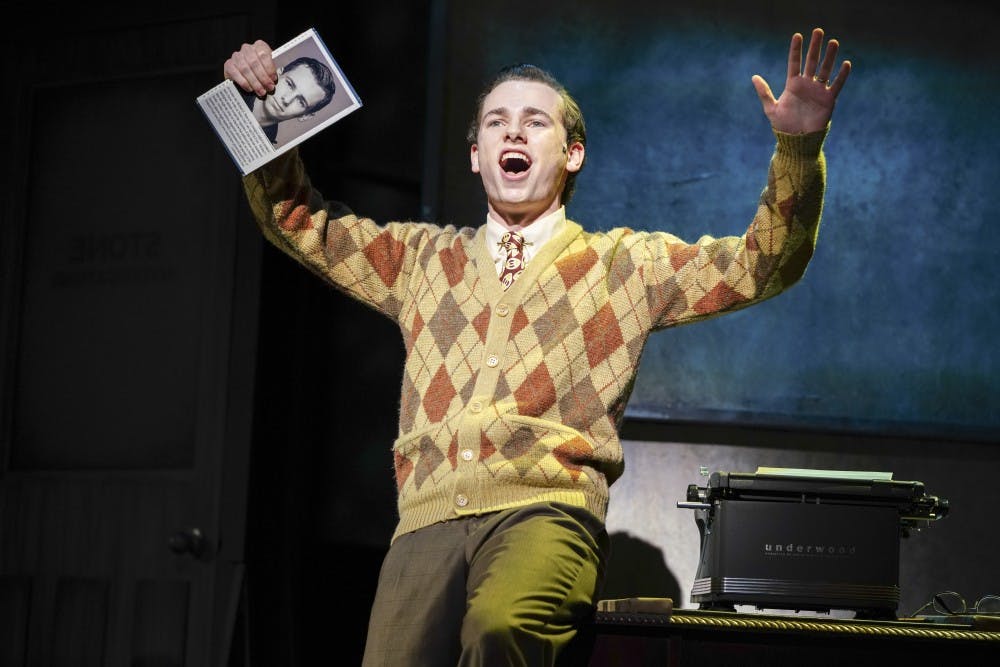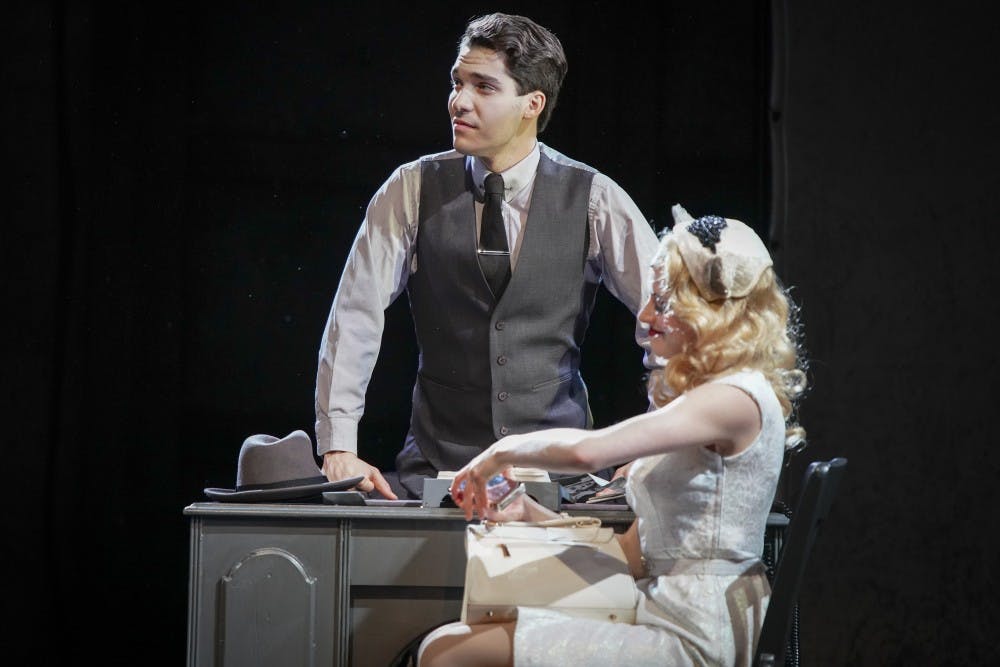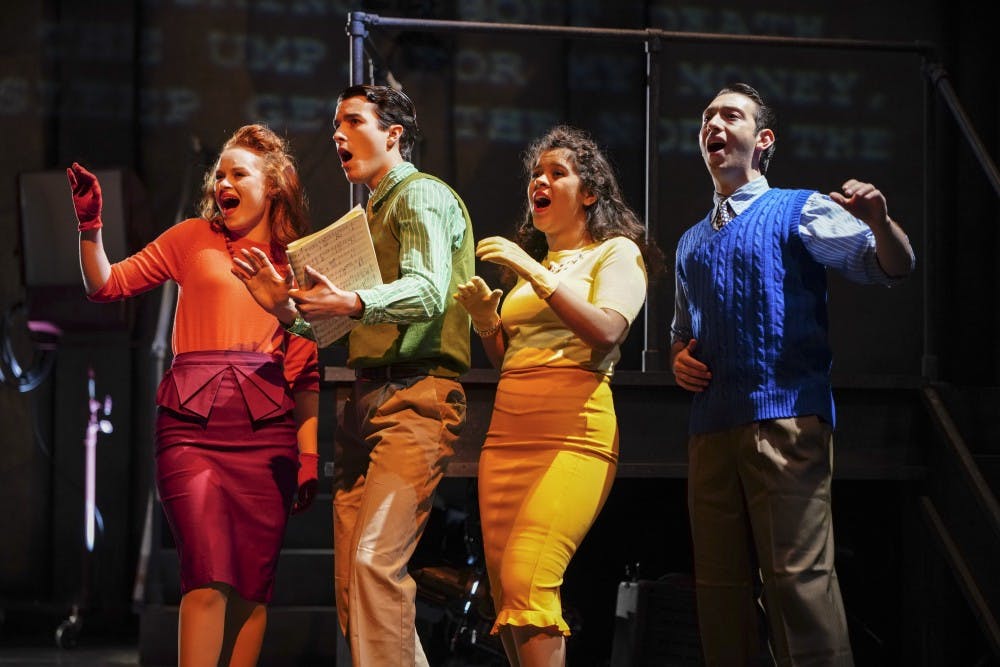“City of Angels” follows the parallel stories of a writer and his character, set with a jazz score in the 1940s. The musical, which premiered on Broadway in 1989, will open this weekend at the Ruth N. Halls Theatre.
IU freshman Cole Winston plays Stine, a crime noir writer who is adapting his hit novel into a screenplay for a Hollywood movie. His character, Stone, played by IU sophomore Josh Carter, is a Los Angeles detective.
The events of Stine's life influence his writing, Carter said.

Winston said his character, Stine, struggles with adapting his screenplay to film while keeping the story true to his own vision. The musical follows the novel evolving into something he doesn’t want it to be.
Every character exists in the real and movie world except for Stine and Stone. Donna, Stine's assistant at the movie studio, is Stone's assistant Oolie in the screenplay.
Winston and Carter have few scenes together on stage, but their characters are integral to each other’s storylines, Carter said.
“I feel like both of our characters are kind of written as halves of people,” Carter said.
Winston said Stine is writing his dream self into the screenplay. Stine writes what he sees of himself in Stone, as well as what Stine wants to be.
Richard Roland, director of the IU production, said he first saw the show on Broadway and thought that, with the production of costumes, lights and settings, the Broadway version was almost a spectacle.
He said the challenge was creating the show without a Broadway budget. As a director, Roland has to rethink how to tell the story in a more simple fashion.
IU’s production features a single set that can adapt to the different locations featured in the show, instead of multiple sets that switch out, he said.
“Ultimately, I didn’t feel like the show was about authentic locations and set pieces, and that the stories of the characters are the real focal point of the show,” he said.

Roland said a difficult element about the show is embracing the style of the musical. To capture the melodramatic style, severe lighting angles, sarcastic wit and humor, and scenes punctuated with music are used.
While theater can be an escapist experience, Winston said, you can’t go to a show without recognizing elements you relate to and that ground you to reality.
Carter said an underlying theme of the show is how choices can affect you.
“I think we see this through the lens of a writer," Carter said. "You have such power to create your own world that is around you, and it’s up to you to kind of influence the world in the spheres that you come in contact with."
Everyone loves the mysterious crime hero, Carter said. The character is someone people want to step into, and people are drawn to the way Stone comes out on top despite crazy scenarios, he said.
Stine wants to be a brave hero like Stone and wants people to associate him with the character, Winston said. This idea is relatable, Winston said.
“The idea that people can idolize someone and say, ‘I want to be like that,’ I think that’s a very universal subject,” Winston said.
Roland said he hopes audiences will enjoy the journey of the writer and the humor and wit of the show.
“He’s a troubled soul, but he’s very human," he said. "And I think we can all latch on to some qualities that we might recognize in ourselves in some of the characters on stage."




